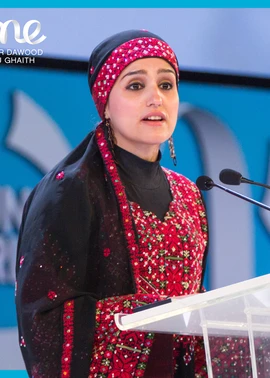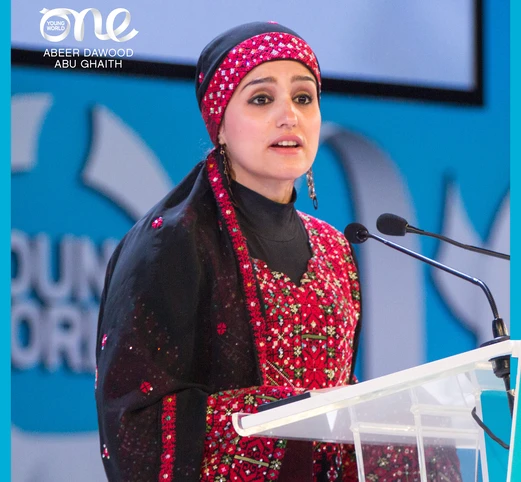Connecting talent, changing lives - helping refugees build sustainable futures through employment
We invite diverse voices to contribute to our blog. The opinions in this blog reflect the personal views of the author and not One Young World.
122.6 million people globally have been forcibly displaced. 37.9 million are refugees. Despite great enthusiasm to return to the workplace, refugees face a myriad of barriers to employment, including language difficulties, family responsibilities, and discrimination. In 2013, I founded my business, MENA Alliances, to help connect global companies with highly skilled, vetted talent from the MENA (Middle East and North Africa) region.
It all began with my personal experience
My journey to founding MENA Alliances was shaped by my experience growing up in a refugee camp in Jordan and living under Israeli occupation in Hebron, the West Bank. I lived there for 28 years of my life, living alongside Israeli and extremist settlers. It was an area filled with tension, especially political tension between the Israelis and the settlers.
The military checkpoints all over the West Bank restricted me from travelling to find job opportunities. I lived in a very traditional and conservative community, and these factors, combined with the fact that I am a woman, made it incredibly difficult for me to find jobs. Even after I graduated from university with a degree in computer system engineering, I couldn’t find work, so I downloaded online tutorials to enhance my skills and keep myself up to date with the developments in tech.
The beginning of MENA Alliances
After two years, I finally found a job, but that came with its own challenges. I faced a lot of discrimination. As a woman in tech, I faced a lot of rejection. It is a hugely male-dominated area and they didn’t trust me. However, I persisted and continued trying to find opportunities that fit me.
I worked with NGOs on programmes to empower women and young people. After five years, I wanted to find a more sustainable way to support my fellow Palestinians than depending on aid and funding. With this, MENA Alliances was born.
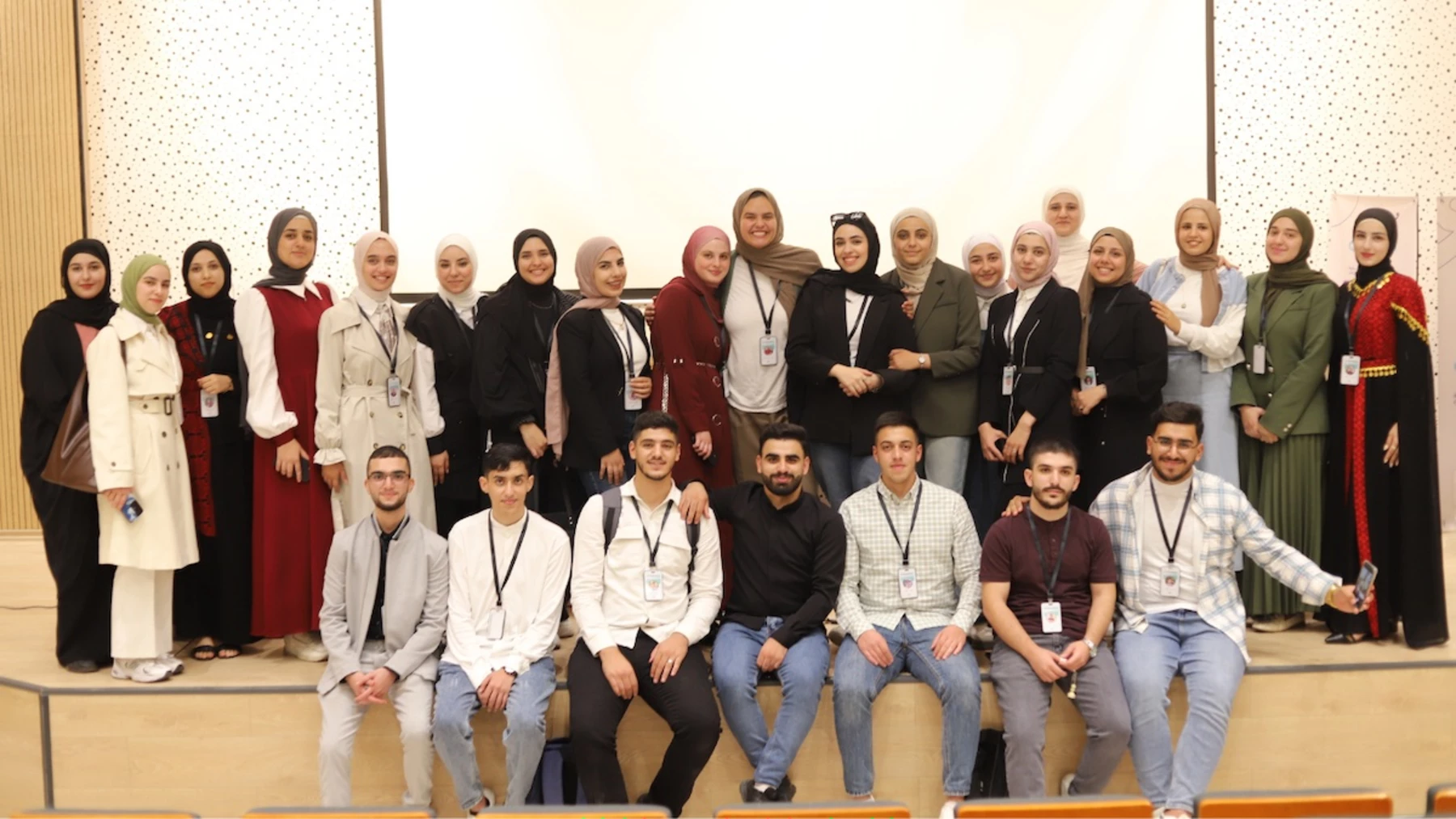
Smashing pre-conceived notions of refugees
When you think of a refugee what do you think of? A person living in a tent, insufficiently educated and with a low income? This perception has to be challenged and must be changed. Refugees are highly skilled individuals with a multitude of transferable skills to offer their employers.
Refugees are resilient and adaptable with the ability to thrive in new environments. They are hungry for opportunities and often show a strong work ethic motivated by their eagerness to rebuild their lives.
Having your life torn apart and becoming a refugee is devastating, but going through that experience requires problem-solving, critical thinking, and the ability to come up with creative solutions. They are the perfect candidates for fast-paced environments, such as start-ups, because they are resourceful and can navigate challenging conditions.
Hiring refugees offers employers the unique opportunity to give their work a fresh perspective. Being from a different culture, and being a refugee, provides a different mindset to what employers are often used to meaning that they bring with them fresh ideas and creativity.
How does MENA Alliances support refugees entering the job market?
At MENA Alliances we have spent over a decade working to help refugees enter the job market. The main way that we do this is by connecting our talent with employers. To date, we work with over 80 brands and organisations across the US, UK, Europe, and the Gulf, connecting them with refugees in their desired work areas.
One of the barriers that refugees often face when accessing employment is the need for flexible working hours due to caregiving responsibilities. This is often the case for people who flee with their families, some of which may be struggling with trauma or injuries. To accommodate this, we offer flexible staffing models and remote jobs, providing opportunities for fully remote employment and full-time, part-time or project-based jobs.
We collaborate with multinational companies to host workshops that equip refugees with the skills and insights needed to meet employer expectations, effectively bridging the gap between talent and opportunity. Additionally, we organise virtual job fairs, providing companies with a unique opportunity to connect with and evaluate highly skilled refugee talent firsthand. These initiatives not only showcase the capabilities of refugees but also help shift perceptions, fostering greater inclusion and understanding.
At MENA Alliances, we go beyond employment support by providing mental health and wellbeing resources to help individuals rebuild their lives. We recognise that those who have faced unimaginable trauma need time to heal and regain their confidence. By offering this support, we empower them to take control of their mental health, ultimately preparing them to excel in their careers. This holistic approach ensures that employers gain access to resilient, motivated, and well-prepared talent who are ready to contribute effectively to their organisations.
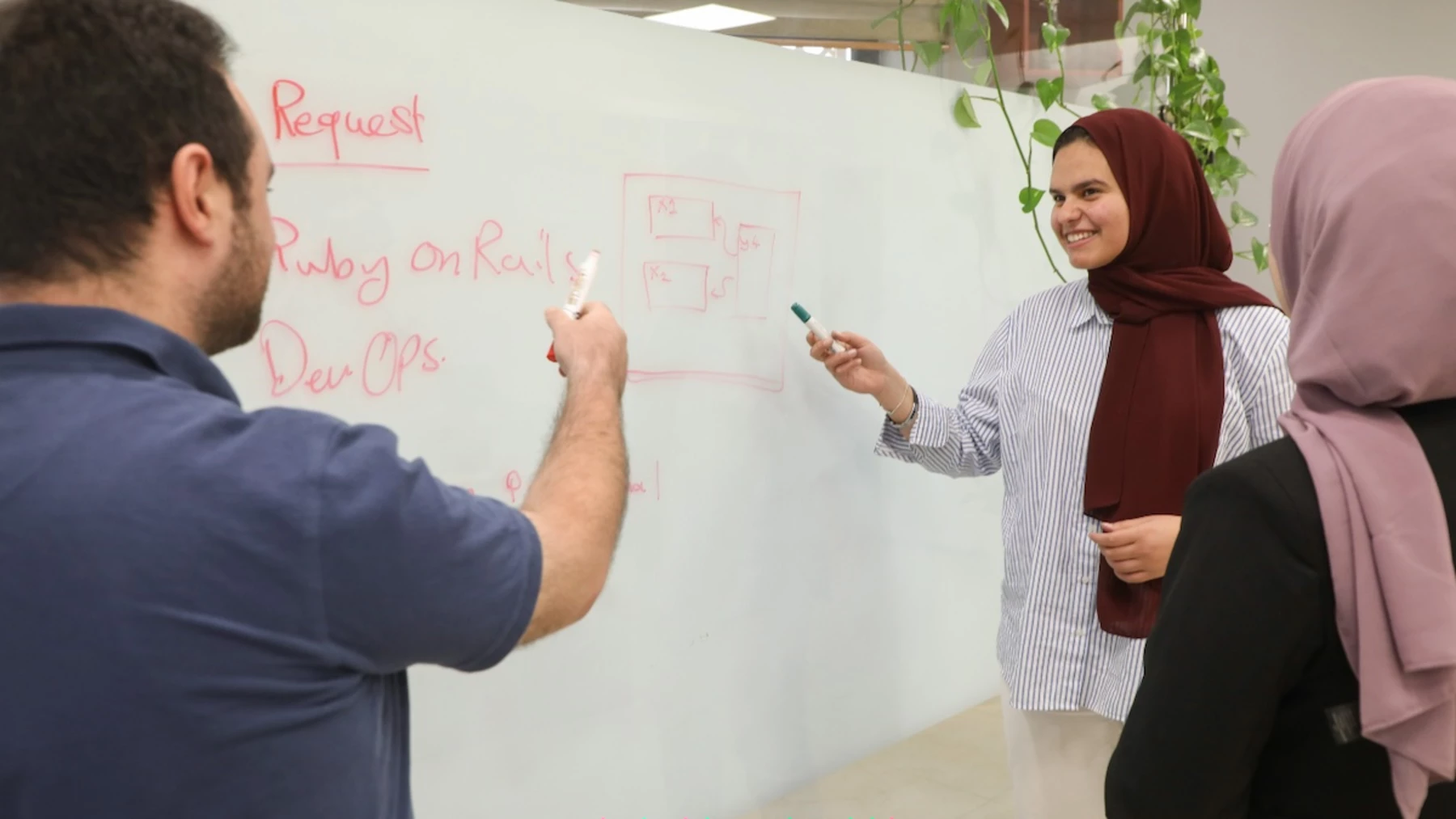
Top considerations when hiring refugees
When you hire a refugee, it's important to consider some factors. The first is flexibility and patience, especially when communicating. For example, employers should be prepared for potential internet or power interruptions due to unstable connections. Or they need to ask when the best time for an interview is, taking into account different time zones and whether the employee is in a conflict zone where it may be dangerous for them to leave at certain times
Part of being flexible is understanding the individual's background. Employers need to look beyond traditionalism and understand the person and their unique experience. Refugees have their own personal stories and valuable skills, but sometimes they struggle to adequately express that, which is why we encourage all employers to get to know the individual alongside their CV.
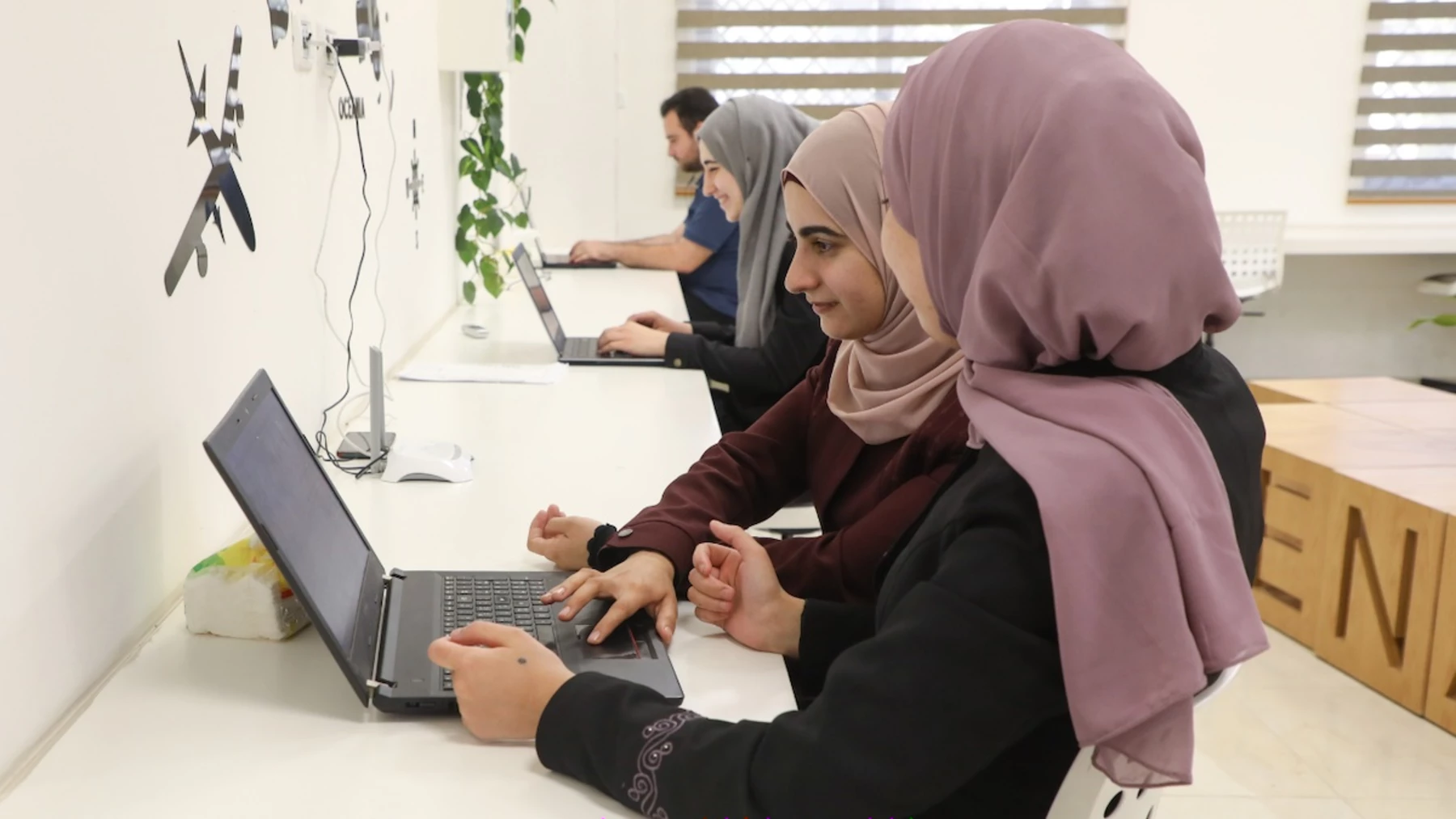
It is important to evaluate a CV based on the context. For example, in Palestine, some people have not worked for over a year, so their CVs may have gaps outside of their control.
Finally, we encourage employers to offer training or upskilling opportunities so that their employees can thrive in their roles. It’s important to be mindful that their employees may have gaps in their knowledge due to their displacement, but they will most likely be eager to fill these gaps if given the support and opportunity to do so.
Jobs for Palestine
Since 7 October 2023, more than half a million Palestinians have lost their jobs. The continuous attacks in Gaza have turned daily life into a constant struggle, making work nearly impossible for many of the people there.
When I look at what's happening in Palestine, I see more than just statistics or headlines. I see people. I see families, parents, women, and young professionals facing unimaginable challenges.
Palestinians don't want charity or a temporary solution. Over and over I hear the same message: “We don't need it. We need jobs.” My response was to set up Jobs for Palestine, an initiative driven by MENA Alliances that aims to create job opportunities for professionals in Palestine, helping them build a sustainable, independent future for themselves and their families.
Our mission at Jobs for Palestine is simple. By the end of 2025, we aim to encourage 200 businesses to hire remote Palestinian digital talent. This is an initiative that is about long-term solutions. It's about helping people lift themselves out of economic hardship by providing the opportunities they deserve. At its core, Jobs for Palestine is about human connection. It's about recognising the incredible potential of Palestinian talent. We want to say to them, we see you, we believe in you, you are not alone, and we are here to support you.
We’re not waiting for change; we’re building it, one job, one opportunity, one empowered professional at a time.
Join me in my mission to bridge the employment gap for refugees
Author
